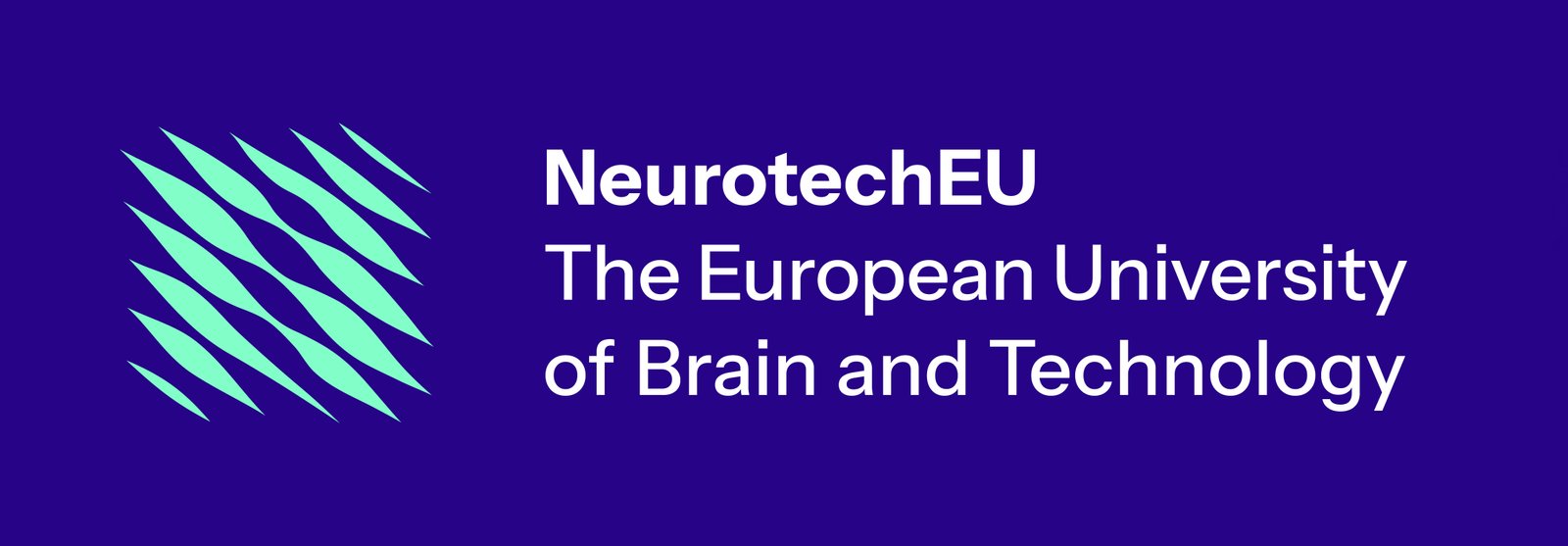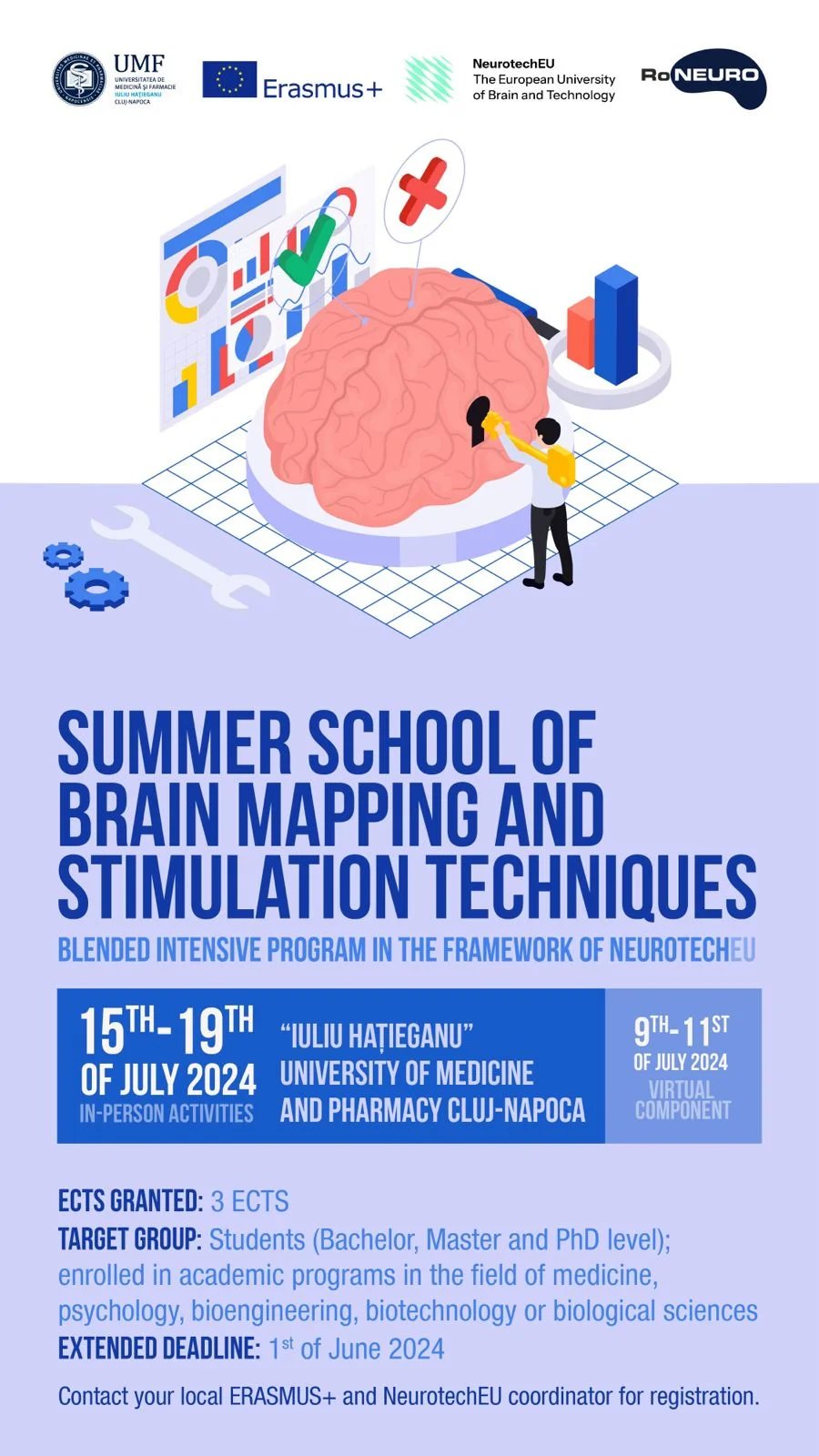Summer School of Brain Mapping and Stimulation Techniques in Cluj, Romania from July 15-19
The “Iuliu Hațieganu” University of Medicine and Pharmacy Cluj-Napoca is pleased to announce the Erasmus+ BIP Mobility opportunity “Summer School of Brain Mapping and Stimulation Techniques” which will take place between July 15-19, 2024 in Cluj-Napoca, Romania.
The blended intensive program will commence with a three-day virtual component, taking part the week before, that serves as an introduction to the subsequent in-person sessions. This online segment is designed to familiarise participants with the core concepts and the wide-ranging realm of brain technologies, including electroencephalography (EEG) and Quantitative EEG QEEG) fundamentals, eye teaching and brain stimulations techniques.
QEEG uses algorithms to transform brain waves into numerical data, which can be analysed to gain insight into signal complexity, brain connectivity, and neural networks. The method has numerous clinical applications, including the study of neuropsychiatric disorders, epilepsy, stroke, dementia and traumatic brain injury. During the program, participants will become familiar with various QEEG analysis tools, such as Brain Vision Analyser and Brainstorm – MATLAB, and engage in team-oriented activities that promote a multidisciplinary approach.
Eye tracking is a technique used to monitor and record the movements and positions of a person’s eyes, providing valuable insights into various aspects of human behaviour, cognition, and visual perception. The course will offer an introductory overview of this method used in psychology, neuroscience, human-computer interaction, marketing research, usability testing and clinical assessment.
Additionally, transcranial magnetic stimulation (TMS) and transcranial direct current stimulation (tDCS) will be presented to the participants in workshops on neuromodulation.
Attendees will benefit from hands-on sessions where they can put theory into practice, utilising state-of-the-art equipment and software to conduct brain mapping and stimulation under expert guidance.
The event aims not only to teach technical skills but also to foster a rich intercultural environment where participants from diverse backgrounds can share experiences and ideas.
In summary, SSBMS represents an opportunity for young neuroscientists, technologists and clinicians interested in exploring and gaining an foundational understanding of brain function and the transformative potential of neurotechnology within an enriching educational environment.
- Main Language: English
ECTS granted: 3 ECTS
Available Places:20 (±2/ERASMUS+ and NeurotechEU partner institutions, flexible based on demand)
Target Group: students (Bachelor, Master and PhD level); enrolled in academic programs in the field of medicine, psychology, bioengineering, biotechnology or biological sciences


